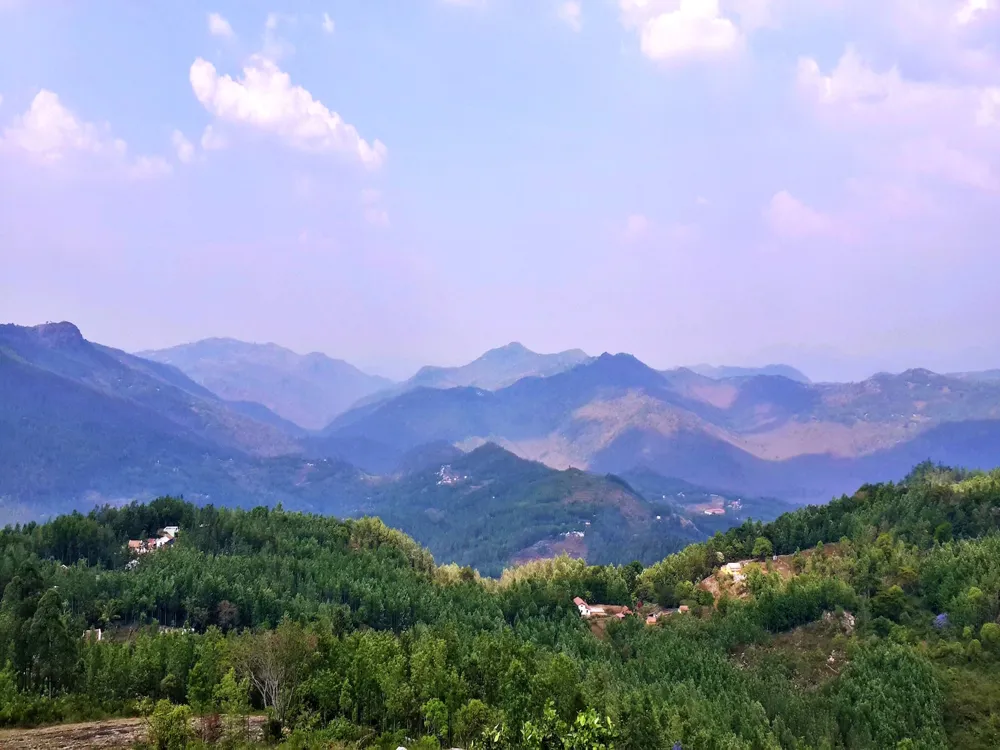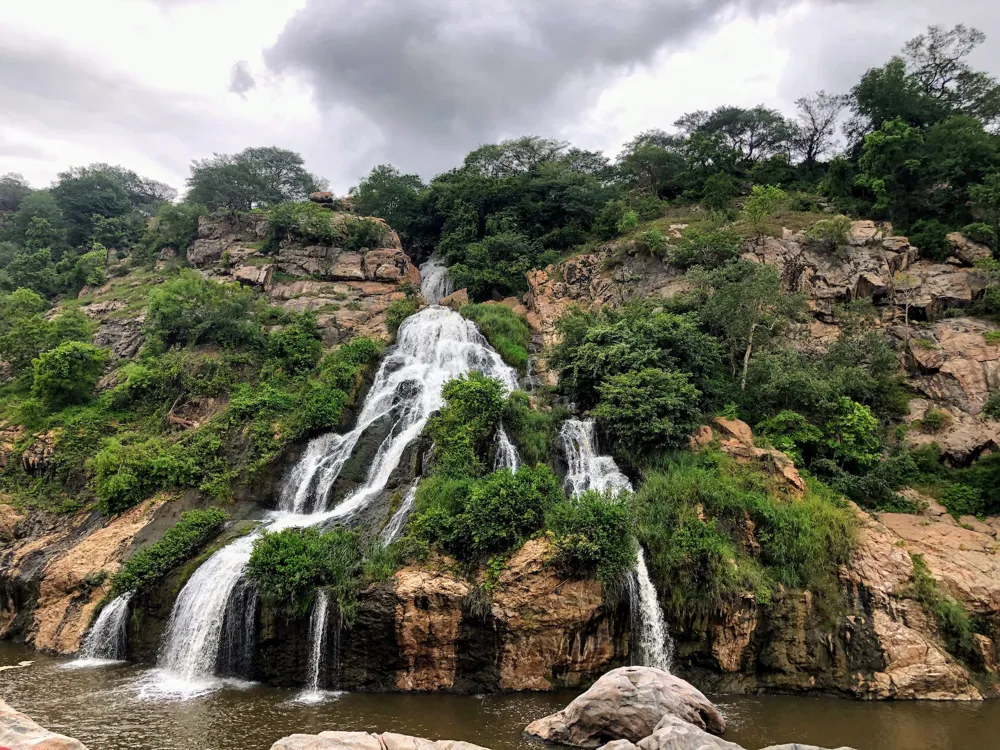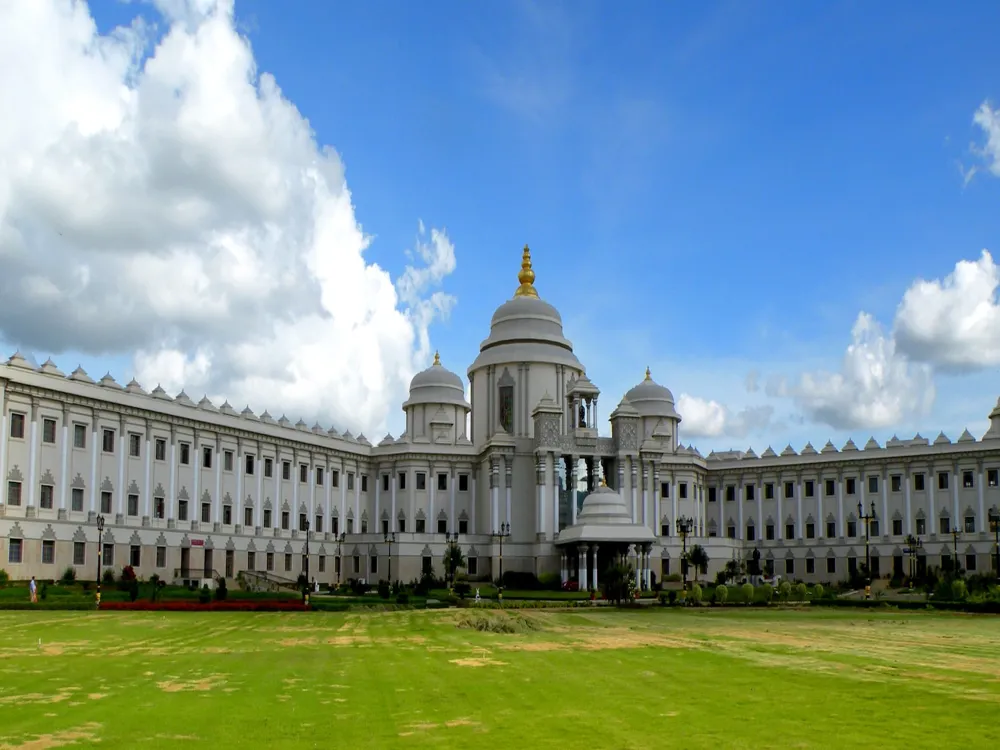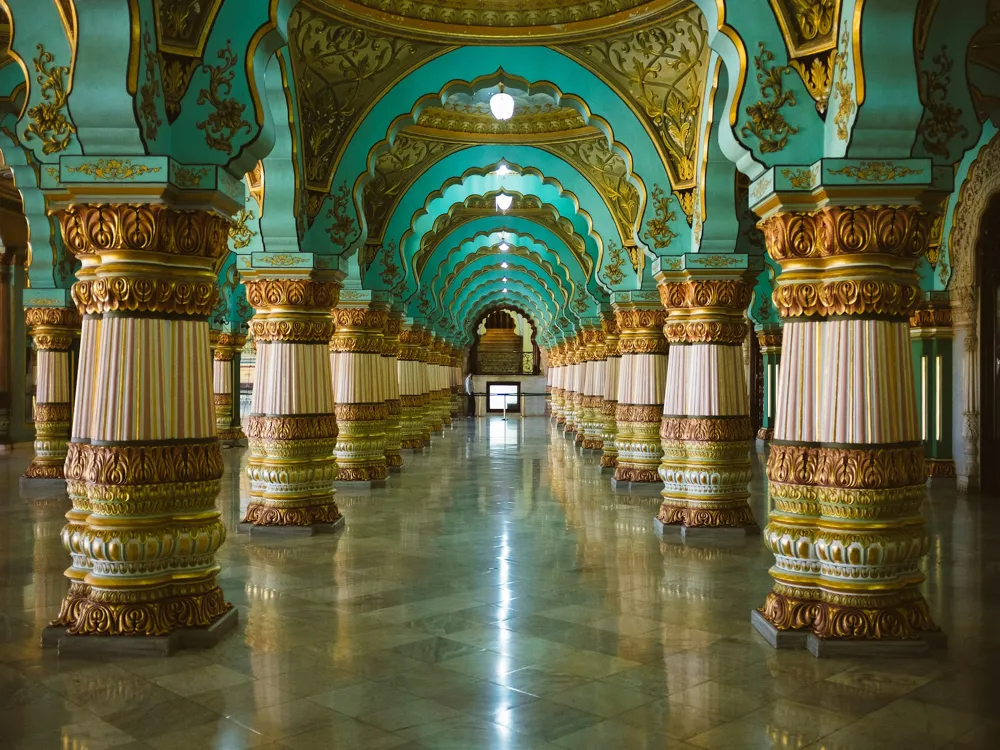Nestled in the serene town of Hogenakkal in Tamil Nadu, the Parameshwari Temple stands as a testament to the rich cultural and spiritual heritage of India. This temple, dedicated to Goddess Parameshwari, attracts thousands of devotees and tourists annually, drawn by its divine aura and historical significance. The temple's location near the Hogenakkal Falls, often referred to as the 'Niagara Falls of India,' adds to its allure, making it a must-visit destination for anyone exploring Tamil Nadu. The origins of the Parameshwari Temple are steeped in myth and legend, dating back centuries. It's believed that the temple was built by ancient sages who chose this picturesque location for its spiritual vibrations. Over the years, the temple has been a center of worship and a beacon of hope for countless devotees. The deity, Goddess Parameshwari, is revered as a form of Shakti, embodying divine feminine power and is worshipped for her blessings of wealth, knowledge, and well-being. The temple's significance extends beyond its religious aspects. It plays a pivotal role in the local community, being a hub for various cultural and social activities. Throughout the year, the temple premises buzz with festivals and events, showcasing the rich traditions and customs of Tamil Nadu. These festivals are not just religious gatherings but also a celebration of life, music, dance, and cuisine, offering a unique experience to visitors. Additionally, the Parameshwari Temple serves as a gateway to exploring the natural beauty of Hogenakkal. The nearby waterfalls, lush landscapes, and tranquil environment offer a perfect blend of spirituality and nature, giving the temple a holistic experience. Whether you are a spiritual seeker, a nature lover, or a culture enthusiast, the Parameshwari Temple promises an enriching and memorable journey. The Parameshwari Temple is an architectural marvel, reflecting the ingenious craftsmanship of ancient Tamil architects. Its design is a harmonious blend of Dravidian and Tamil architectural styles, which are evident in its intricate carvings, towering gopurams (temple towers), and majestic mandapas (pillared halls). The temple's structure is not just a display of artistic excellence but also a symbol of the spiritual philosophy of Hinduism. As you step into the temple, the first thing that strikes you is the grandeur of the main gopuram. Adorned with intricate sculptures and vibrant colors, it stands as a majestic gateway to the divine realm. The gopuram is not just an architectural element; it symbolizes the journey from the material world to the spiritual world, guiding devotees toward enlightenment. The temple complex is spread over a vast area, featuring several smaller shrines, each dedicated to different deities. The central shrine, housing Goddess Parameshwari, is a masterpiece of art and devotion. The sanctum sanctorum is designed to ensure that the deity receives the first rays of the sun, symbolizing the presence of divine energy and blessings. The walls around the sanctum are adorned with frescoes and sculptures depicting scenes from Hindu mythology, each telling a story of faith, valor, and devotion. Another notable feature of the temple's architecture is the use of natural light. The architects skillfully designed the temple to maximize the use of sunlight, creating an ethereal ambiance inside the temple. The play of light and shadow adds a mystical quality to the temple, making the experience of visiting it truly transcendental. The temple also boasts a large open courtyard, surrounded by colonnaded halls. These halls are not just for prayer; they serve as a gathering place for devotees and as a stage for cultural performances. The intricate pillars of these halls are adorned with carvings of gods, goddesses, and mythical creatures, each a testament to the artisan's skill and devotion. In summary, the architecture of the Parameshwari Temple is a fusion of spiritual symbolism, artistic brilliance, and architectural ingenuity. It stands as a proud reminder of India's rich cultural legacy and continues to inspire awe and reverence in all who visit. Visitors are advised to dress modestly, respecting the temple's cultural and spiritual significance. Traditional Indian attire is recommended, but comfortable, non-revealing clothing is acceptable. While photography may be allowed in certain areas of the temple, it's important to respect the rules regarding photography inside the sanctum sanctorum and other restricted areas. Maintain a decorum befitting a place of worship. This includes speaking softly, not disturbing the prayers, and following the temple's customs, like removing footwear before entering the main shrine. Plan your visit during local festivals for a more immersive experience. However, be prepared for larger crowds and plan your visit accordingly. Allocate time to explore the scenic beauty of Hogenakkal Falls and the surrounding areas, which offer a perfect blend of spirituality and nature. The Parameshwari Temple in Hogenakkal is well-connected by road and is accessible from various parts of Tamil Nadu. The nearest major city is Dharmapuri, from where you can hire taxis or take buses to reach the temple. For those traveling by air, the nearest airport is in Bangalore, approximately 150 kilometers away. From Bangalore, one can take a bus or hire a taxi to Hogenakkal. For visitors preferring train travel, the nearest railway station is in Dharmapuri, from where taxis and buses are readily available to take you to Hogenakkal. Read More:Overview of Parameshwari Temple, Hogenakkal, Tamil Nadu
Architecture of Parameshwari Temple
Tips When Visiting Parameshwari Temple
Dress Appropriately
Photography Guidelines
Temple Etiquette
Local Festivals
Exploring Surrounding Areas
How To Reach Parameshwari Temple
Parameshwari Temple
Hogenakkal
Tamil Nadu
NaN onwards
View hogenakkal Packages
Hogenakkal Travel Packages
View All Packages For Hogenakkal
Top Hotel Collections for Hogenakkal

Private Pool

Luxury Hotels

5-Star Hotels

Pet Friendly
Top Hotels Near Hogenakkal
Other Top Ranking Places In Hogenakkal
View All Places To Visit In hogenakkal
View hogenakkal Packages
Hogenakkal Travel Packages
View All Packages For Hogenakkal
Top Hotel Collections for Hogenakkal

Private Pool

Luxury Hotels

5-Star Hotels

Pet Friendly





















